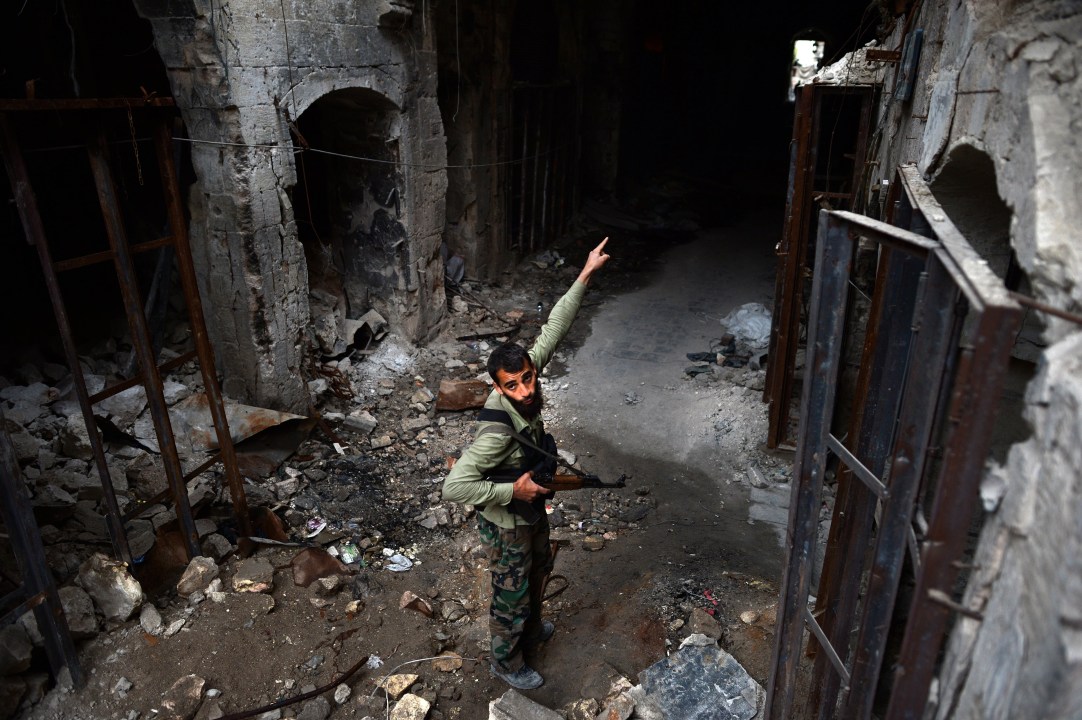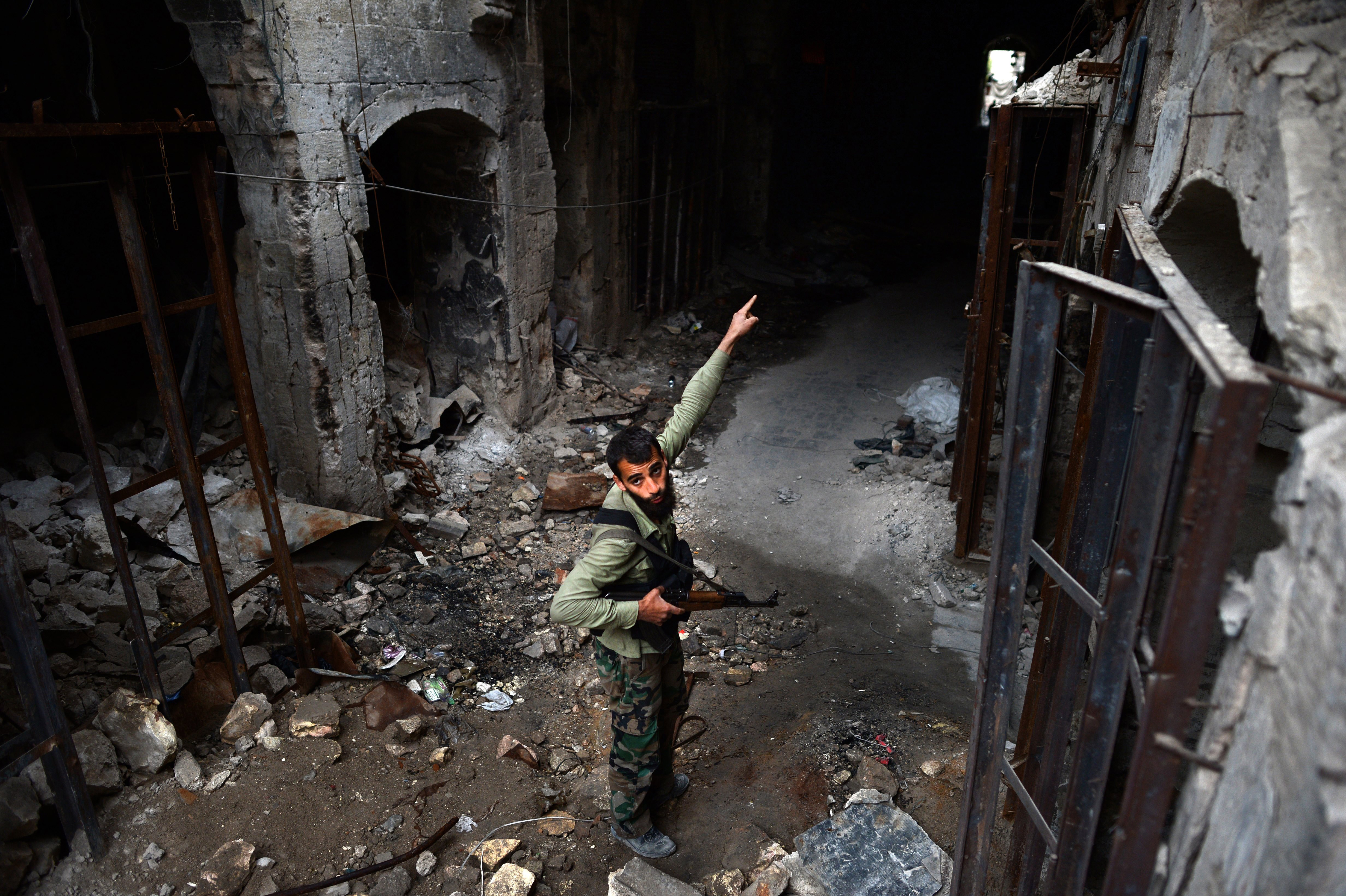We’ve heard it all before — the misery that war wreaks on everyday lives — but Lina Sinjab’s audio diary of her experiences in Syria took us right into the heart of what it feels like to be hounded out of your home, your memories, your sense of who you are and where you belong. Sinjab grew up in Damascus, her whole life has been lived there, but now she has left, forced out by the uprising. In Damascus Diary, produced by Nina Robinson (Radio 4, Monday), she recalled how at first the demonstrators in support of the government and against the rebels chanted ‘Long live Assad’, and ‘Assad for ever’. Then their demands changed to ‘Either Assad or nobody’ and ‘Either Assad or we will burn our country’. Now that’s changed to, ‘We will burn the country’.
When the fighting began, parents told their children that the sporadic gunfire they could hear was simply fireworks, and explained the pall of black smoke rising from the suburbs, ‘It’s just a chimney.’ Now of course the children are wise to what’s going on. They know instantly whether what they’ve just heard is gunfire, mortar shell, or multiple rockets. This is what the uprising has so far achieved: it’s perverted the normal course of growing up, and in the process transformed a vibrant city into a desolate, dangerous place where a man on his bicycle out shopping for gas to fuel his family’s cooking stove is shot dead by a sniper. It’s all been destroyed so easily, says Sinjab, almost in an instant.
She talks to a 14-year-old boy who’s meant to be in school but since its destruction by government mortar fire now works as a nurse in a makeshift hospital, set up to tend the wounded fighters of the opposition FSA (Free Syria Army). ‘I should be speaking English to you by now,’ he says, but instead of learning the language he’s looking after rebel soldiers with eyes torn out, limbs cut off, blood everywhere.
‘It’s scary,’ says Sinjab, as she struggles to carry on as if life was normal, setting up a barbecue on the roof of a friend’s home and having a party while watching the snipers down below picking out their targets. She sees a tank close to the city centre, not parking this time but actually firing shells into the nearby suburb of Jobar. ‘My family lives two streets behind that tank,’ she tells us.
As the writer Angela Carter once remarked about radio, ‘It’s the most visual of mediums because you can’t see it.’ It’s also the most intimate. Sinjab’s diary for radio gave us a much more vivid, almost visceral, connection with what’s been going on in Syria than any TV news report.
Carter’s passion for radio (she wrote a number of radio dramas) was recalled by her friend Susannah Clapp in Saturday’s Archive on 4 (Radio 4, produced this week by Tim Dee). Clapp, who grew up in the 1950s as one of what she calls ‘the wireless generation’, wonders what effect radio has had on writers who’ve been listening to it since childhood. How much was their craft inspired and fashioned by what they heard when young? For Richard Holmes, Andrew Motion, Posy Simmonds, Christopher Cook, Alan Holling-hurst, the wireless was as present as Twitter and Facebook are for today’s teenagers. The Bakelite box or plastic transistor was their social media, taking them out into the world as they listened to Luxembourg and Caroline, but also on journeys inside their own minds as they were gripped by John Masefield’s The Box of Delights, by Journey into Space or the hypnotic rhythm of the football results, and especially those from the Scottish League: Heart of Midlothian, Partick Thistle, Queen of the South.
‘Listening to radio takes the brake off the imagination,’ says Christopher Cook. You hear what’s being said, and your mind takes flight. It’s also very ‘modern’ in that it’s very fragmented. All you have to do is twiddle the dial and you can switch immediately from late Beethoven to David Bowie, or life in Ambridge to the conflict in Damascus. Once plugged into your earphones, no one can invade your space or eavesdrop on what you’re listening to.
In Mark Lawson’s new play for radio, Suspicion for 10 Voices (Saturday, Radio 4), we were taken back into Elizabethan England and the eavesdropping world of the Queen’s spymaster Francis Walsingham. Walsingham has got the master musician William Byrd on the rack, suspecting him of anti-Protestant activities, and of using his music to send cryptic messages to other recusant Catholics. Byrd retaliates through the only language he really knows: polyphony.
Byrd was played by Simon Russell Beale while his music was sung by a startlingly good treble, Joseph Hancock, in a drama (produced by Eoin O’Callaghan) that subtly played with the idea of inner freedom and state tyranny. ‘They cannot legislate to make our souls obedient to them,’ argues Byrd, in just one of many sharply written lines. ‘How do your thugs hope to gain an entrance there?’







Comments